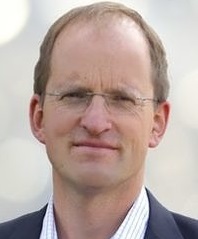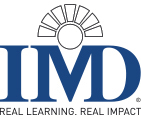- Learning
Non-Profits and For-Profits Come Together
IMD offers a space for Non-Profits and For-Profits to learn to collaborate for a better world
One of the things that becomes apparent working in an institution like IMD, is the powerful impact that is created when diverse people are brought together. This is something that occurs in our programs all the time on campus here in Lausanne. Whether it is an open program with participants from many different organizations attending, or a custom one, for just a single organization. Cross-boundary connections are made between participants and new perspectives created as a result.
One of the most interesting – and rewarding – examples of this has been the increasing inclusion of participants from non-profit organizations in our senior leadership programs. While the organizational objectives of a for-profit and not-for-profit are clearly distinct, there is also a large overlap in challenges they both experience. Stakeholder management issues, value-creation for their clients, the decision frameworks needed to evaluate inevitable trade-offs, adapting to and accommodating technological and societal change. These are universal management issues for organizations.
Increasingly there are also purer commercial similarities both types of organizations face in identifying their ‘competitive space’ and managing their brands and reputations as well. We are seeing that the gap between NGOs and for-profits is becoming smaller and smaller, the competition for funding means they have to know how to think and act as a for-profit organization in order to succeed.
Having senior leaders from both non-profits and for-profits on the same program has a dual benefit. Firstly, not only do they both learn from each other, understanding the others challenges and perspectives better and doing this in a natural way. Often their only opportunity to meet outside of programs like these, are in combative sessions where they might be presenting and defending their stances – over a three-week program they have a much better opportunity to see each other as humans, and not corporate or non-profit managers who are tasked with throwing obstacles in each other’s ways.
Secondly, they create the opportunity to build on this better understanding to create collaborative initiatives that can benefit both parties. We are seeing many large corporates enthusiastically engaging in non-commercial activities these days, partly because it is good for their brand, but also because it is good for retaining talent and creating purpose in the organization. NGOs and non-profits can offer a wide range of opportunities to support this style of learning – and in return gain from the talent, experience and energy people from the corporate world can bring.
As valuable as creating a structured space where people can come together to exchange ideas and perspectives away from the noise of their normal working routines is, IMD is not just an introduction agency, bringing diverse people together. The participants need to leave with an enhanced understanding of how to operate effectively too, and as we have seen the challenges facing large non-profits are often not dissimilar to those of their commercial counterparts.
Defining strategy is as important for non-profits as for-profits; and strategy is ultimately about choice. We use a very structured process of how to think about their challenges. How to frame them, how to identify the optimal priorities, how to manage trade-offs that inevitably come with choices, and how to get buy-in from the stakeholders. This does not just happen by sitting around a camp-fire comparing stories, there has to be a process that brings and explains the content that can provide the basis for these conversations.
Post-program there is an equal emphasis on developing the strategies. IMD is establishing a platform where our non-profit clients can engage and continue collaborating with one another on a continuous basis. We also connect them with our colleagues at EPFL, the top-ranked engineering school in Lausanne, or the scientists at CERN, the particle collider tech institute in Geneva, who, for instance, help the NGOs with the fundamental disruption that technology is bringing to their organizations’ operations now.
Many international NGOs and non-profits now need to rethink, or at least re-analyse, if their structures are optimal for new world contexts. Previously they leveraged their developed world provenance to help solve problems in less-developed economies – and to fund raise from there too; but today those opportunities to fund-raise and gain collaborative support are just as likely to be in Asia and Africa themselves. The challenge being how to set themselves up to access this and leverage technology to serve their constituents, both structurally and in the services they offer.
We are seeing non-profit participants joining the digital management programs as much as with the general management programs. And we back this up with research we conduct on what are the best approaches to managing these transitions for non-profits, and how that differs from for-profit approaches. Terre des homme (Tdh), a Swiss-based children’s rights organization has recently been working at this level with IMD, which has ultimately led the NGO to create a Disruptive Innovation Unit led by Thierry Agagliate. The IMD collaboration has resulted in a mindset shift at Tdh from an administrative accountability logic one to an entrepreneurial logic one.
As the modern world becomes more collaborative to manage its complexity, it is important that institutions such as ours at IMD, can provide a space and on-going platform for non-profits and for-profits to come together and learn and collaborate. This is an area that can only become more valuable and continue to grow in importance in solving the global challenges we, non-profits and for-profits, are facing.
IMD is a top-ranked business school, expert in developing leaders, transforming organizations and creating immediate and long-term positive impact.
ARTICLES YOU MIGHT LIKE
VIEWPOINT
For Thomas Misslin, transformation rather than training is the aim of executive education at emlyon business school
DEVELOPING LEADERS QUARTERLY MAGAZINE AND WEEKLY BRIEFING EMAILS


































